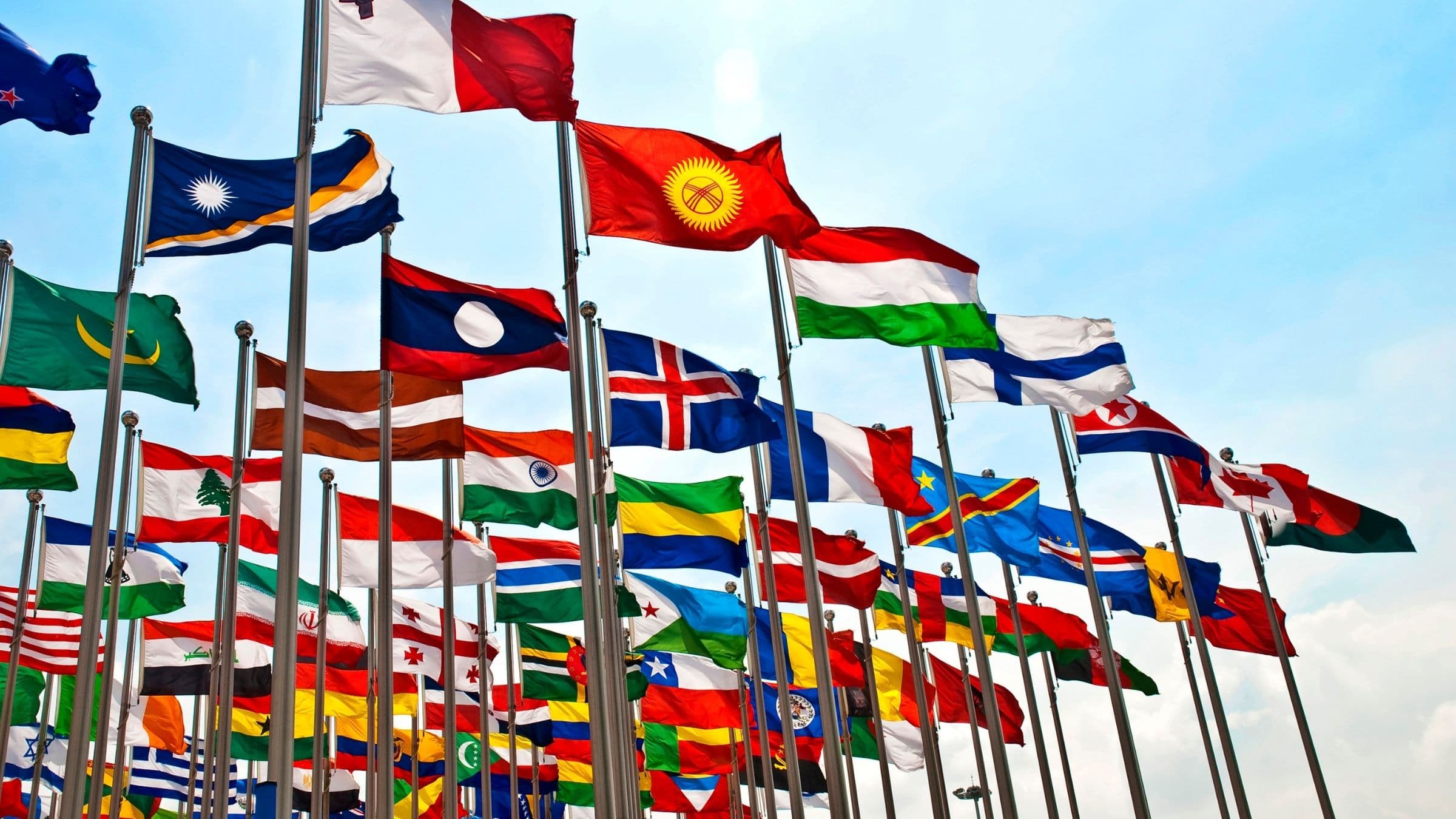
COUNTRY PROFILE
Discover more about the Cameroon market. Events, resources, and more are linked throughout the profile.

$42.1 million
total U.S. exports of processed foods to Cameroon in 2023

149%
growth in U.S. processed food exports to Cameroon since 2022

30.1 million
total population in 2023
Euromonitor reports that the economy in Cameroon expanded in real terms in 2022, driven by increasing public and private consumption and capital investment. However, global economic slowdown, elevated inflationary pressures and tightening financial conditions are set to undermine business and consumer confidence globally, raise uncertainty and weigh on the country’s economic outlook.
The population of Cameroon was 30.1 million in 2023 (CIA World Factbook Est.). The median age is only 18.8 which makes it one of the youngest countries in the world. More than 60% of the population is under the age of 25 as of 2020. Only 3.2% of the population is over 65 years which is low, or about 960,000 people. The population growth rate is 2.7% which is on the higher end of the scale.
The country has generally enjoyed stability, which has enabled the development of agriculture, roads, and railways, as well as a petroleum industry. Nonetheless, unrest and violence in the country’s two western, English-speaking regions has persisted since 2016. Movement toward democratic reform is slow and political power remains firmly in the hands of President Paul Biya.
Cameroon has investment and/or commercial agreements with the European Union, the United Kingdom, Canada, China, Japan, Russia, South Korea, Turkey, and the U.S. Cameroon ratified the Africa Continental Free Trade Agreement in 2020. A Bilateral Investment Treaty (BIT) between Cameroon and the U.S. entered into force in 1989. The BIT renews automatically under the terms of the treaty every 10 years. Companies must obtain a Foreign Government Approval (FGA) letter from the Cameroonian government if they wish to invest in Cameroon.
In 2009, the government signed an interim Economic Partnership Agreement (EPA) with the EU in order to secure duty-free, quota-free access to the European market in exchange for the gradual removal of duties and quotas for European goods entering Cameroon. The EU EPA went into force in 2014. Cameroon signed an EPA with the United Kingdom in 2021 to mirror provisions of the EU EPA following the United Kingdom’s exit from the European Union. Cameroon lost its Africa Growth and Opportunity Act (AGOA) eligibility in 2020 due to gross violations of internationally recognized human rights.
USDA’s Office of Agricultural Affairs in Lagos Nigeria or FAS Post Lagos reports that there are both opportunities and challenges for U.S. food exporters in the Cameroonian food market.
In 2022 Cameroon ranked eighth in the region for U.S. exports of processed foods. The 2022 total was US$19.3 million, up 158% from the prior year and a record high. In YTD November 2023 U.S. processed food exports to Cameroon grew another 149% to a new record high already of US$42.1 million.
Top U.S. processed food exports to Cameroon in 2023 included:

$1.3 billion
estimated retail sales of packaged food in 2023

28.1%
growth in retail sales of packaged food

1.9 billion
projected retail sales of packaged food in Cameroon by 2028
According to Euromonitor retail sales of packaged food in Cameroon is forecast to reach just over US$1.3 billion in 2023. That represents growth of 28.1% and a US dollar equivalent of US$288.1 million. By 2028, Euromonitor forecasts that retail sales of packaged food in Cameroon will reach nearly US$1.9 billion. This represents growth of 34.9% and a US dollar equivalent of US490.3 million.
High growth products in the forecast include:
Euromonitor reports that France-based multinational Carrefour continued to expand its global footprint during 2022 with the opening of its first hypermarket in Cameroon. This store is located at the PlaYce shopping Centre in Yaoundé and it was inaugurated during July 2022. While the Carrefour hypermarket is one of the PlaYce shopping center’s major attractions, the shopping center also houses stores from major international apparel and footwear brands. PlaYce is a company that develops and operates modern shopping centers, and it also has a strong presence in Côte d’Ivoire.
The inauguration of the Carrefour outlet in the PlaYce shopping center in Yaoundé represents the first time that a hypermarket has been located in a popular shopping center in Cameroon and with selling space of 4,000 m2, it offers a wide range of both grocery and non-grocery products. This is likely to result in higher consumption across a wide range of product categories in various consumer goods industries.
Another grocery retailer of French origin entered Cameroon during 2022: BUT. This company is a smaller player in France, and it established its footprint in Cameroon in 2022 with the opening of a store at the PlaYce shopping center in Yaoundé. Unlike the larger Carrefour outlet in the same mall, but only sells grocery items, specializing in fresh and packaged food and beverages. The entry of this less well-known international brand is a sign of increased competition in grocery retailers in Cameroon, with leading names in the category including Carrefour, Casino, and Supeco, among others.
The mainly French-origin international grocery retailers that are entering Cameroon have taken a leaf from the book of their local rivals in terms of locating their stores in key districts of Yaoundé and Douala. Thus, major local grocery retailers will likely face stronger competition in upscale neighborhoods of Cameroon’s two largest cities, where they are more likely to attract the attention of the country’s affluent urban middle class.
The forecast period is expected to the major international grocery retailer’s chains that have been present in Cameroon for the longest such as T Choithram and Sons’ Mahima SARL face increasing levels of competition due to the entry of rivals with a strong international distribution system already in place. In particular, it is expected that multinational retail companies of French origin with a global footprint will continue to develop their operations in grocery retailers in Cameroon, with CFAO Group is planning to expand its operations aggressively via the opening of numerous new Carrefour and Supeco stores. Meanwhile, Sodicam SA is planning to open its first Casino hypermarket in Cameroon, and this is a sign that major chained grocery retailers now see Cameroon as a country with enormous potential for growth. It is also pointing out that these retailers have very strong e-commerce operations in most of the countries in which they were to operate, and this raises the prospect that they will also focus on developing e-commerce in Cameroon during the forecast period.
This comes after leading pan-African internet retailer Jumia Technologies AG ceased operations in Cameroon in 2019, which leaves the development of e-commerce in the country wide open for any modern grocery retailers that are prepared to invest in the development of online operations. Spar already has an online platform operating in the country, with before the end of the forecast period. This also reflects the rising penetration of mobile and fixed line internet connections as well as rising smartphone ownership, with Cameroonians expected to become increasingly interested in shopping online as a result.
FAS Post Lagos advises that top U.S. processed products in the Cameroonian food market include tree nuts, food preparations, peas, rice, whiskies, frozen fish, sauces, dressings and condiments, beer, and non-alcoholic beverages.
